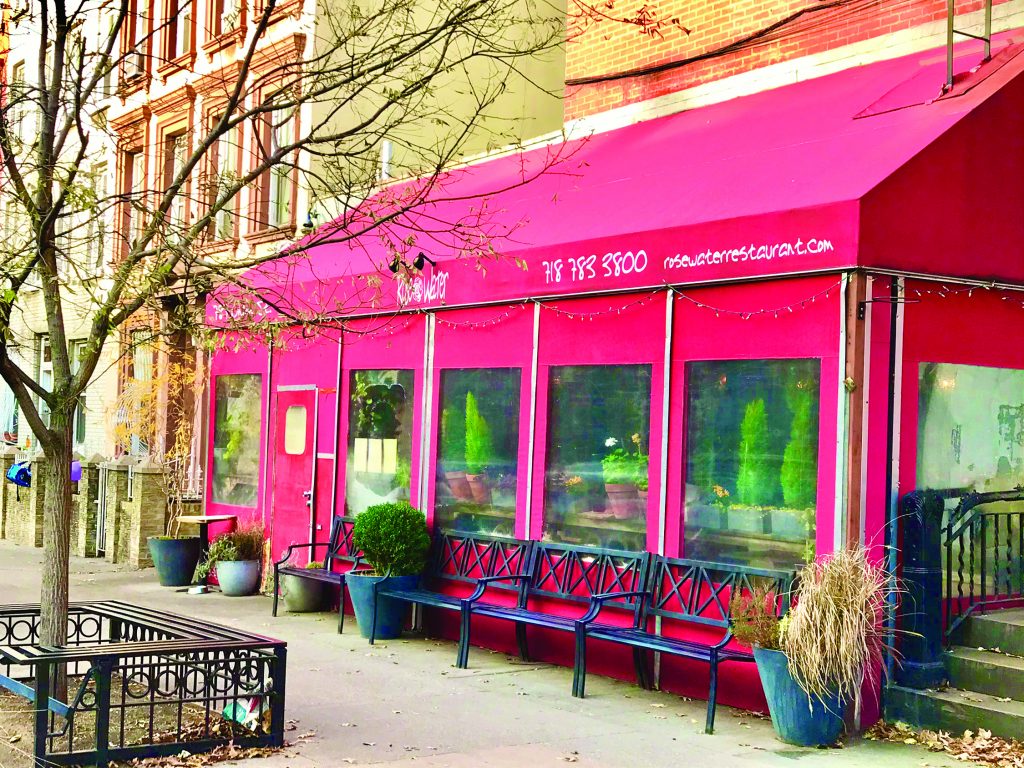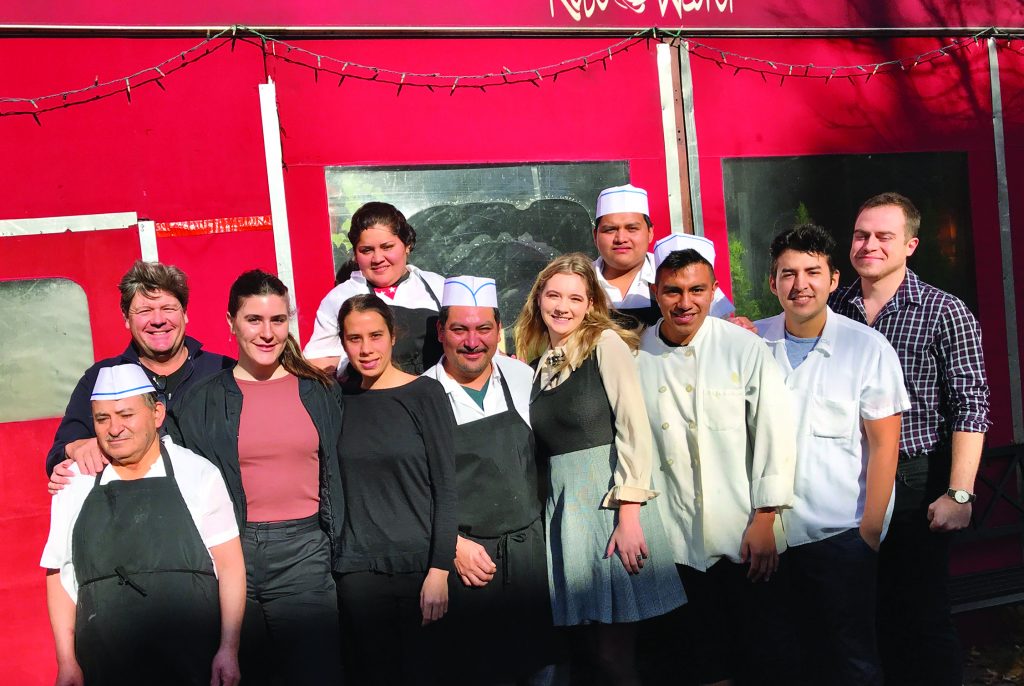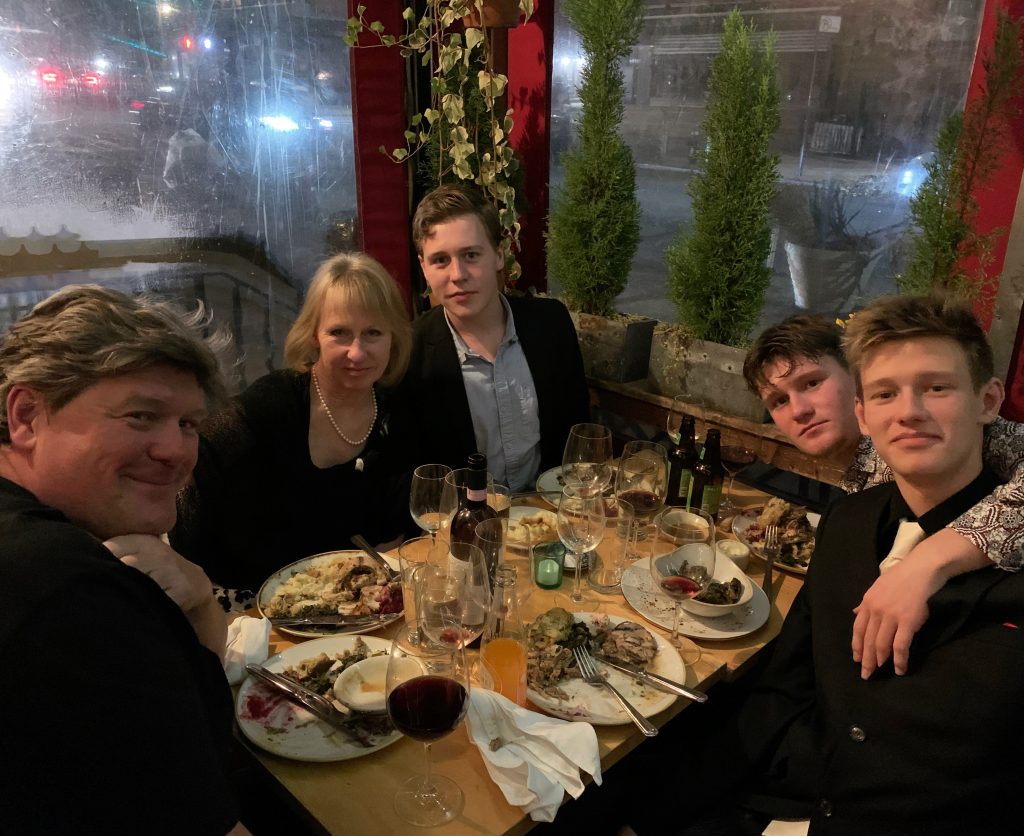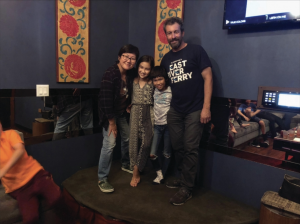
You may know Sohui Kim and Ben Schneider as the husband-wife duo behind Insa and The Good Fork, but on top of these two projects and a third restaurant in the works, they are also parents to two school age children. We talked to Sohui about the intrinsic value of work, what it’s like to be a mother and executive chef, and how she continues to balance it all with a new historical revival restaurant—Gage and Tollner—on the way.
Viviane Eng: So describe what it’s like to own multiple businesses while also parenting two kids enrolled in public schools.
Sohui Kim: Well, let me first get my drink… There are certainly a lot of balls in the air. We try to juggle everything: marriage, career, children. I liken a restaurant to putting on a show, with all its moving parts. At a restaurant like Insa, the staff is big and the scope is big. I mean, just its square footage is big so that means we need a lot of great people on the team to be there. As an executive chef and mom, it makes me feel I’m responsible for everybody, so sometimes it can feel like a little too much. And because my work is in restaurants, it always follows me home—the cell phone’s always on.
VE: How do you and your husband split up the parenting responsibilities?
SK: It’s often the case that one of us is home to care for the kids, and then we sort of tag team. Then there are certain days in the week where we say this is family day. Sadly, right now, that’s like one day a week. But no matter what you do, family comes first, so we try to prioritize and it usually works. I’ve never forgotten a kid at pickup. I’ve come close, but have never left anyone stranded, knock on wood! There’s certainly a lot of scheduling, especially on my end. As progressive as this family is and as progressive as I want to think this society is, I think the onus falls mostly on me as a mom to do the scheduling. I know plenty of family situations that are different, but I’m sort of better at it than my husband. It gets harry sometimes and stressful, but that’s all life.
VE: Tell me about your restaurants and the decision to have kids after starting your first business.
SK: We have three businesses. My husband and I opened the Good Fork in 2006, before we had any kids. It’s a small little neighborhood bistro in Red Hook where we live. I got pregnant with my daughter Jasper in 2007 and Oliver came two years later. At the time, owning one restaurant and starting a family was all that I could handle. I would’ve never thought about opening a second, but in 2014 we figured that the kids were a little older and we thought to ourselves, What do we want to do professionally? Then came the idea of opening a Korean restaurant, which really appealed to me as a Korean immigrant. It was a cathartic experience to go back and decide to explore Korean food professionally, when all my life I had trained in French and Italian cooking styles.
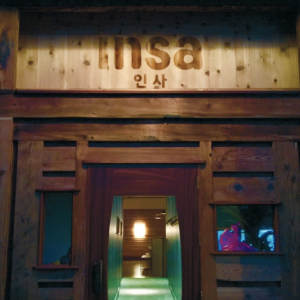
VE: Have the kids always been receptive about your busy schedules?
SK: Insa definitely posed a greater challenge in terms of maintaining a normal family life, but we made do with it. Although I have to tell you this one story from when the kids were younger: We hadn’t signed a lease yet for Insa and were sort of talking about the concept of opening up a large Korean barbecue restaurant with karaoke rooms and a separate area. The little voice of Oliver said, “Are you guys opening another restaurant?” And we were like, “Yes, honey, we’re going to do this.” We started talking about it at the dinner table and both kids put on a sad face and went, “Noooo don’t do it!” We asked them why and they went, “Because we’ll never see you!” That almost broke me, but they were old enough where if they didn’t have school, we could bring them to the worksite.
VE: What are some of the positive aspects of having parents in the restaurant industry?
SK: Before Ben and I teamed up to do The Good Fork, he was a woodworker, so at Insa, he built the space while I designed the menu and cooked. The kids got to really see us do our work and take a certain pride in it, and that’s a beautiful thing. Luckily, a restaurant is a physical space we can all go. The kids know all our employees, which we consider extended family, so it’s great for them to be a part of that world and really get to see what we do. My son has a career day coming up in a few weeks—it’s the first one ever at P.S. 372 and he asked present at it. A lot of the time, children don’t have any clue what their parents really do, because the parents work in an office that the kids go to maybe once a year.
VE: What do you hope that your kids have learned after spending so much time in restaurants?
SK: I remember as a child working as a babysitter, and I don’t know if it was because I was an immigrant and immigrant families work all the time, but I do want to instill the value of work in my kids. I know they’re seeing the value of work because no one works harder than a dishwasher or server and I love that they’re seeing that and appreciate that.
VE: What’s in store for the new project?
SK: This next project, Gage and Tollner, it is even bigger in scope because it’s a revival of a historical restaurant, an old oyster chop house that dates back to 1889. It’s an interior and exterior landmarked space in Downtown Brooklyn, so there are a lot of eyes on it as we get ready to open this spring. We’re not really a family that relies on nannies—we sort of do everything—but when the crunch time comes with the opening, we’ll definitely have to rely on some friends to help out at least with Oliver.
VE: I’m sure your work keeps you plenty busy, but how do you try to stay involved in your kids’ school affairs?
SK: I’m cooking for the gala at P.S. 372 this year. I always feel so compelled to do what I can for my kids’ schools. My daughter graduated from there two years ago and my son’s been there since kindergarten. It’s just a great school and I want to give back and do whatever I can. When my daughter graduated, I cooked for the gala and will do it again at the end of March! I can’t go to every PTA meeting, and I feel bad about that, but every once in a while, if I can do something big to help out these awesome public schools, I’m down for it.
Interview has been edited and condensed for clarity.


